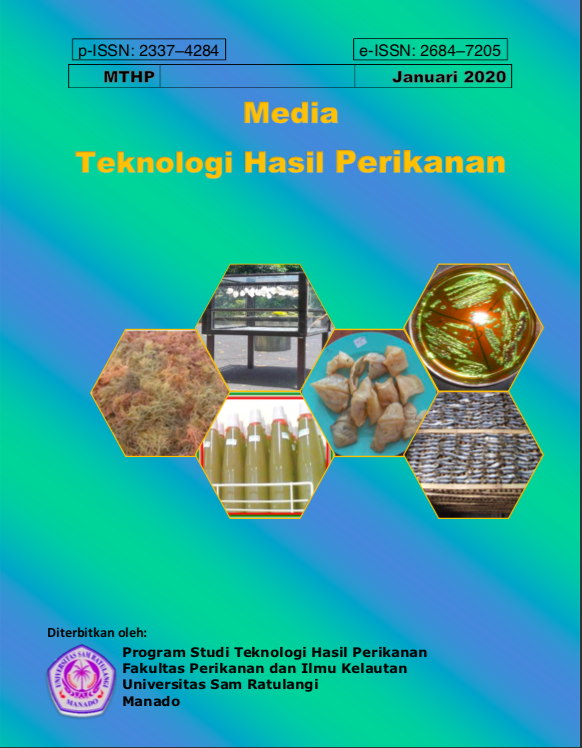Peningkatan Mutu dan Pendapatan Pengolah Ikan Cakalang Asap di Desa Pontoh, Kecamatan Wori, Kabupaten Minahasa Utara, Provinsi Sulawesi Utara
DOI:
https://doi.org/10.35800/mthp.8.1.2020.26056Keywords:
Pengasapan, Desa Pontoh, Produksi, Pemasaran, KeuanganAbstract
A low level of sanitation and hygiene applied by smoked fish processors in North Sulawesi can affect the quality and safety of the product itself. Interestingly, there is a huge market demand of smoked fish product in North Sulawesi. That is why  it is necessary to improve quality of smoked fish product by assisting the smoked fish processors. The program's target partners are located in Pontoh Village, Wori District, North Minahasa Regency which is geographically located on the coast Pontoh Village is categorized as a fishing community, which is about 50% classified as poor families and has a small business group of processing smoked fish. The aim of this program is to increase production, marketing and finance for small entrepreneurs in Pontoh Village, Wori District, North Minahasa Regency so they can be skilled and economically independent. The specific target of this activity is to produce smoked fish products that are superior in terms of taste and shelf life while providing business continuity and strong management. The method of implementation that will be applied to this program are 1) Training on how to produced smoked-fish product using good manufacturing practices  2) Assiting about sanitation and hygiene in every step of producing smoked fish; 3) Advising on management
Downloads
Published
How to Cite
Issue
Section
License
Authors who publish with this journal agree to the following terms:
- Authors retain copyright and grant the journal right of first publication with the work simultaneously licensed under a Creative Commons Attribution License that allows others to share the work with an acknowledgement of the work's authorship and initial publication in this journal.
- Authors are able to enter into separate, additional contractual arrangements for the non-exclusive distribution of the journal's published version of the work (e.g., post it to an institutional repository or publish it in a book), with an acknowledgement of its initial publication in this journal.
- Authors are permitted and encouraged to post their work online (e.g., in institutional repositories or on their website) prior to and during the submission process, as it can lead to productive exchanges, as well as earlier and greater citation of published work (See The Effect of Open Access).






